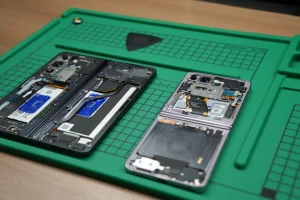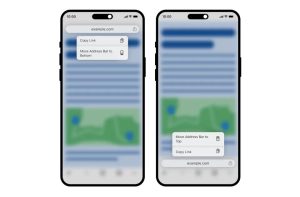In an unexpected restructuring of its leadership team on Friday, OpenAI’s board of directors announced the termination of CEO Sam Altman, who is set to depart both the company and the board with immediate effect. The role of interim CEO will be assumed by Chief Technology Officer Mira Murati.
Altman’s removal reportedly stems from an internal “deliberative review process,” revealing that he had not been consistently transparent in his communications with the board, impeding its ability to fulfill its responsibilities, as stated by the company. Consequently, the board has lost confidence in his capacity to effectively lead OpenAI.
Expressing gratitude for Altman’s significant contributions to the establishment and expansion of OpenAI, the board believes that Mira, as the leader overseeing the company’s research, product, and safety functions, is highly qualified to serve as interim CEO. The board has full confidence in her ability to guide OpenAI through this transitional phase.
OpenAI’s board comprises Chief Scientist Ilya Sutskever, Chairman and President Greg Brockman, and independent advisors without equity in the company: Quora CEO Adam D’Angelo, tech entrepreneur Tasha McCauley, and privacy advocate Helen Toner of the Georgetown Center for Security and Emerging Technology. Notably, Altman, despite his former role as CEO, was also considered an independent advisor on the board before his departure.
i loved my time at openai. it was transformative for me personally, and hopefully the world a little bit. most of all i loved working with such talented people.
will have more to say about what’s next later.
🫡
— Sam Altman (@sama) November 17, 2023
Altman’s public profile has risen significantly in tandem with the rapid growth of generative AI technologies over the past year, positioning him as an unofficial ambassador for both OpenAI and the burgeoning industry as a whole. Formerly the president of Y Combinator, Altman has testified before Congressional panels, participated in Senate AI Insight forums, and been a frequent speaker at industry conferences.
The abruptness of Friday’s announcement is particularly surprising given Altman’s consistent and robust promotion of his company and its products leading up to his termination. Just a week prior, Altman unveiled the faster and more responsive GPT-4 Turbo platform and introduced smaller, application-specific models known as GPTs during OpenAI’s 2023 DevDay. On Thursday, he attended the Asia-Pacific Economic Cooperation CEO Summit in San Francisco, expressing enthusiasm about the advancements in conversational AI and its transformative impact.
Altman and Murati are not the only figures affected by this shakeup. Greg Brockman, serving as board President, was also informed that he would need to step down, prompting his resignation based on the day’s news, as communicated in a company-wide email to OpenAI employees.
Microsoft, having signed a “multibillion-dollar” partnership extension with OpenAI in January, experienced a dip in market trading on Friday. Despite the stock impact, Microsoft affirmed its commitment to the existing partnership with OpenAI, citing a long-term collaboration focused on advancing AI innovation. The company’s spokesperson emphasized Microsoft’s dedication to Mira and the OpenAI team, stating they will continue to deliver the benefits of AI technology to the world.
This turn of events follows the reported details of Microsoft’s $10 billion investment in January, elevating OpenAI’s valuation to $23 billion. Microsoft is slated to receive a substantial portion, reportedly 75 percent, of OpenAI’s profits until the investment is repaid, after which it will decrease to 49 percent.
OpenAI, co-founded by Altman and Elon Musk in 2015 as a nonprofit, saw Altman serving as the CEO of its for-profit arm since 2019. The company gained widespread attention with the release of the highly popular ChatGPT conversational AI in November, which played a pivotal role in fueling the generative AI boom. Initially built on the GPT-3.5 platform, ChatGPT’s capabilities quickly expanded to include various languages, modalities, programming code output, and API access for controlling remote processes and devices.




